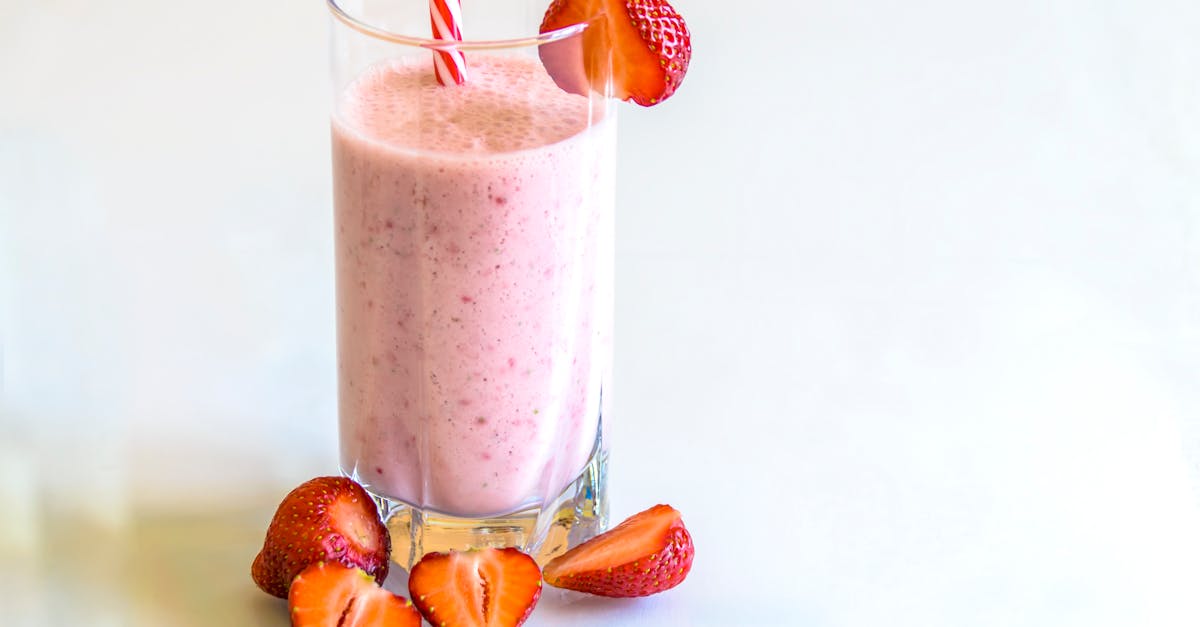
How Many Calories In A Protein Shake With Milk
- October 14, 2024
- 4 min Read
- Views 485
Understanding How Many Calories in a Protein Shake with Milk
Protein shakes are a popular supplement among athletes, gym enthusiasts, and those looking to stay in shape or indulge in a healthy lifestyle. However, when combining protein powder with milk, it's crucial to have an understanding of the calorie content. In this article, we'll explore how many calories in a protein shake with milk, how it can vary based on ingredients, and why it matters for your dietary goals.
Calories in Protein Shakes: The Basics
Protein shakes can vary immensely in their caloric content based on the type of protein powder used and whether any additives are included. The most common protein powders available are whey and plant-based proteins such as soy, pea, or hemp. Typically, a serving of protein powder can contain anywhere from 100 to 150 calories. However, these numbers shift when you consider the type of milk used in your shake.
For those who prefer using cow's milk, calorie content can range from 80 to 150 calories per cup, depending on whether you choose skim, whole, or reduced-fat versions. These numbers can change drastically if you opt for alternatives like almond, soy, or oat milk, which typically range from 30 to 130 calories per cup. Adding them together will give a clearer picture of how many calories in a protein shake with milk of your choice.
The Impact of Milk on Your Protein Shake Calories
Let’s delve deeper into the calculation of the calories in a protein shake with milk. By using a standard 120-calorie protein scoop, the calorie numbers can alter significantly based on the milk you selected:
- Skim Milk: 80 calories + 120 calories (protein) = 200 calories
- 1% Milk: 102 calories + 120 calories (protein) = 222 calories
- Whole Milk: 150 calories + 120 calories (protein) = 270 calories
- Almond Milk: 30-60 calories + 120 calories (protein) = 150-180 calories
- Soy Milk: 80-100 calories + 120 calories (protein) = 200-220 calories
- Oat Milk: 120 calories + 120 calories (protein) = 240 calories
These values demonstrate how crucial the type of milk is in determining how many calories in a protein shake with milk you will be consuming.
Factors That Affect Calorie Content in Protein Shakes
To further customize or enhance your protein shake, additional ingredients can contribute to the overall caloric intake. Here are some common add-ins and their impact:
- Fruits: Bananas, berries, and other fruits can add 60-100 calories depending on quantity.
- Nut Butters: Peanut or almond butter adds approximately 90 calories per tablespoon.
- Syrups or Flavorings: Add approximately 75 calories per serving.
- Chia or Flax Seeds: Contribute roughly 55 calories per tablespoon.
Understanding these contributions is crucial for managing your caloric intake and achieving nutritional balance.
Guide Steps: Making a Protein Shake with Milk
- Select Your Protein Powder: Choose between whey or plant-based proteins according to your dietary preferences.
- Choose Your Milk: Decide on the type of milk you prefer, considering caloric content. Measure one cup.
- Add Optional Ingredients: Include fruits, seeds, or other supplements if desired, remembering their calorie contribution.
- Blend It Up: Combine it all in a blender and blend until smooth for a nutrient-packed and -calorie counted shake.
- Consume Mindfully: Sip slowly and enjoy your perfectly crafted protein shake, while benefiting from a balanced intake of protein and other essential nutrients.
Frequently Asked Questions (FAQ)
- Does the type of protein powder affect calories? Yes, different protein powders have varying calorie contents, typically between 100 and 150 calories per serving.
- Are protein shakes with milk good for weight loss? They can be, if you maintain portion control and account for the additional calories from milk.
- How can I reduce calories in my protein shake? Opt for lower-calorie milk options, reduce portion sizes, and limit high-calorie add-ins.
Tags
Protein Shakes, Milk, Calories, Nutrition, Health, Fitness
References
People Also View
-
1September 30, 2024
-
2October 13, 2024
-
3October 05, 2024
-
4October 06, 2024
-
5October 05, 2024
Categories
- Near Me 2147 Posts
- How To 548 Posts
- Where To 257 Posts
- Why 90 Posts
- How Much 97 Posts
- Travel 202 Posts
- Food And Drink 815 Posts
- Shopping 797 Posts
- Lifestyle 1050 Posts
- Automotive 364 Posts
- Digital Income 70 Posts








